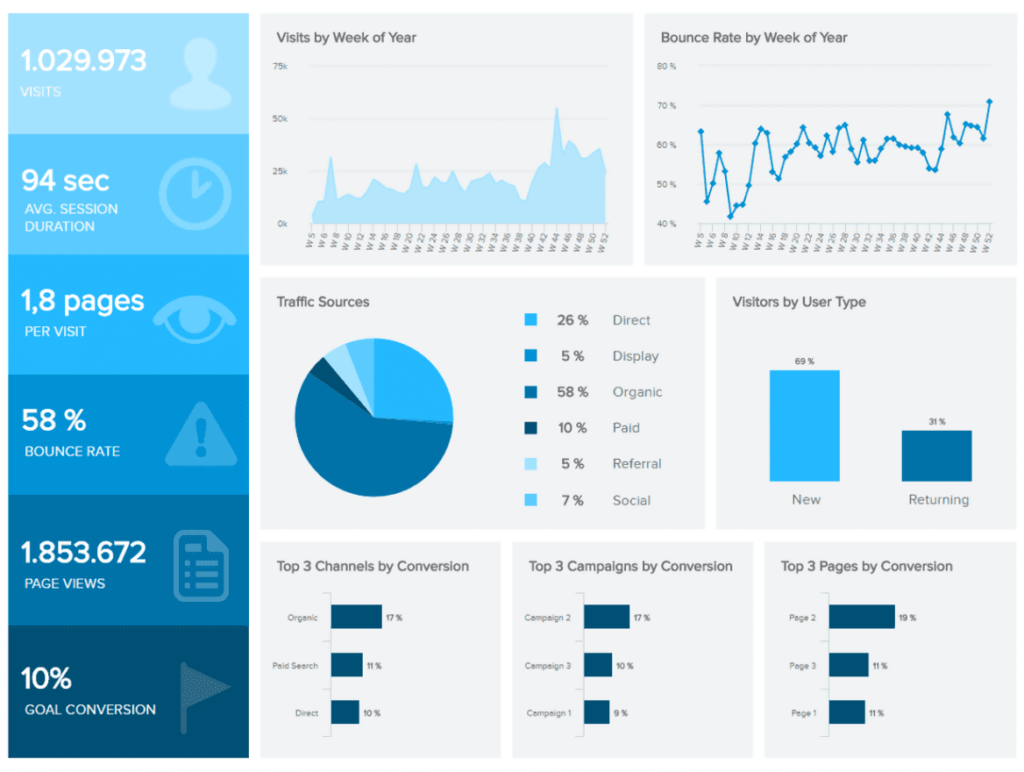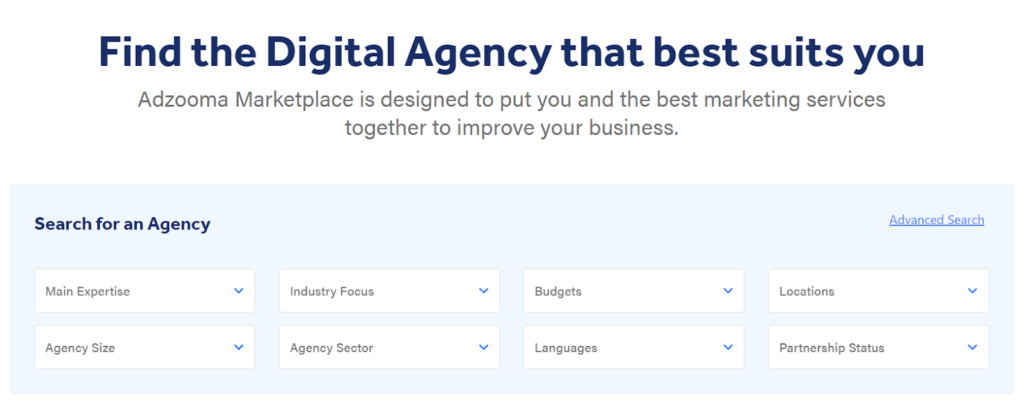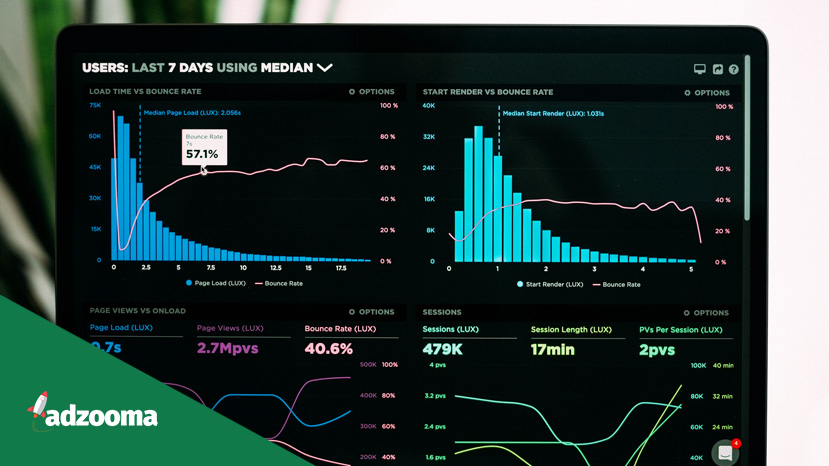Data helps us navigate the uncertain path of the future. It helps us to spot trends, make informed decisions and anticipate what is to come. And, if something is ever wrong, the data makes it loud and clear.
The trouble with data is that there’s just so much of it, but dashboards are an excellent way of housing it all.
They’re designed to help you manage and optimise your performance in one screen, allowing you to make vital changes and reduce wasted spend in a matter of minutes. You can even use them to create reports for clients and stakeholders with data visualiation that’s measurable, tangible and easy to understand.
Here’s exactly what they can be used for and how they can help you get more out of your business.
What are Dashboards?
The term “dashboard” was originally adopted by cars, relating to the real-time data about how our cars are performing. If your oil is running low or something needs your attention, it’s right there for you to know about it.
Business dashboards work in the same way, providing aggregate data that can contribute to the overall success of your company. 90% of businesses believe data and analytics are key to their digital transformation initiatives, and they’re not wrong.

The key to creating a high-level dashboard is to make it your own and present the data in a way that works for you. If you look at the example above, you’ll see that the user prefers to highlight the most important metrics on the left-hand side, followed by the highest-performing channels, campaigns and pages across the bottom of the screen.
This is the most common type of dashboard, known as an Operational dashboard, but you can also use:
- Analytical Dashboards – These typically require a deeper level of understanding, full of numbers and jargon that you’d only be able to make sense of if you knew what you were looking for.
- Strategic Dashboards – If you’re looking for a dashboard to share with your whole organisation or to monitor long-term growth, this is your best bet.
Why are they so beneficial?
Dashboards take all of your data – be that PPC, SEO or financial data – and turn it into an easy-to-understand snapshot of what’s going on. You can usually tailor them to the most important metrics of your business, meaning you’ll only see the performance indicators relevant to you.
There’s also the option to add features like pie charts, graphs, interactive maps, but using professional dashboard services to help you with this can cut out a lot of manual work. When it’s up and running, your dashboard will act as your virtual assistant that eliminates tedious tasks and only ever focuses on increasing your ROI.

Most dashboard software is also programmed to suit any mobile device, like Adzooma’s free reporting suite, allowing you view, analyse and share insights from any location.
“The best thing about dashboards is that they allow you to get the data you need quickly and easily. When you haven’t got the time (or let’s be honest, patience) to take a deep dive into your data, dashboards can ensure that you aren’t missing out on those key performance indicators.”
- Sophie Logan, PPC Manager at Adzooma
Use your dashboard to tell a story with data. Refer back to your initial performance, set a realistic plan of action and look at month-on-month trends when you’ve made some changes. It’s awareness like this that can transform your business.
Who needs to have one?
Almost every business can benefit from having a dashboard. Larger organisations might find it useful to have multiple, to set realistic targets and goals across each department.
Dashboards can help if:
- You keep finding anomalies in your existing data
- You don’t know how to manage your data or turn it into something useful
- You need to improve results but can’t understand your current performance
- You’re struggling to manage your data across more than one platform
- You need to automate your workload to allow for better results and a stronger ROI
If these are problems your business faces on a daily basis, a dashboard may be the answer. It could be integral to your success if you’re part of a certain industry.
In the words of Allan Wintersieck, Co-founder and CTO of Devetry, a software consulting and engineering company:
“It’s essential for SaaS companies to develop a comprehensive data strategy. Asking the right questions of your team and yourself will put you on a path to a strategy that works for your company.”
If you’re looking to build a strategy or just need some direction, Adzooma Marketplace can quickly put you in touch with digital experts. Specialising in areas such as dashboards along with branding, content marketing, lead generation and more, you can find the expertise you need in minutes.
Get started today on the Adzooma Marketplace.

How much do they cost?
As with a lot of things, the more you’re willing to pay, the better the product will be.
Platforms such as 5000fish also offer free trials, so it’s definitely worth trying a few if you aren’t sure which features you’ll use. You might even find that the packages at the lower end of the scale offer everything you need.
It also depends what you need to use a dashboard for – where some businesses use them to manage their teams, there is software out there dedicated to business analytics or monitoring digital advertising campaigns.
How do I create one?
If you want to create a dashboard in Excel, you need to start by importing all of your data. It’s up to you how you do it but it’s probably best to copy and paste or use ODBC to connect your apps.
Once you’ve added your data, you’ll need to restructure your Excel workbook, create a table with your preferred columns and begin analysing everything you’ve collated. This will help you figure out which charts best represent your data and how you can use tools such as auto-shapes, named ranges and Excel dashboard widgets to help with formatting.
Then you’ll have to create your chart, pull in the most important data, ensure it’s correct and repeat the process again.
Or, you can save all of this time and effort by heading over to the Adzooma Marketplace.
Designed to help businesses connect with a high-quality agency in minutes, it’s the quickest and easiest way to succeed online. You can connect with some of the biggest brands on the market, send them a message while you browse and compare star ratings to find the best Dashboard software for you.
Explore our Dashboard recommendations today to start making the most out of your all-important data.




